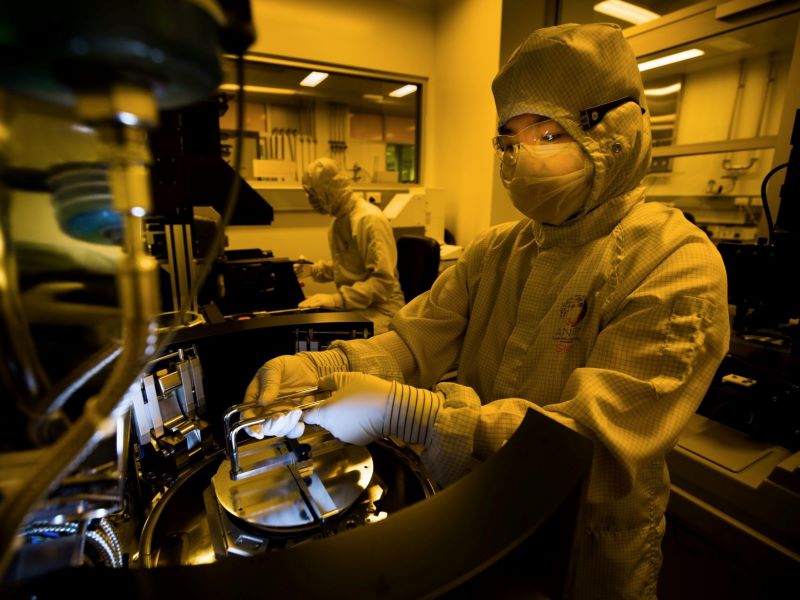Half of the six research projects vetoed by the previous government have been funded in the latest round of Australia’s flagship fundamental research scheme. The three projects were among nearly 500 to share in $221 million for the 2023 round announced Thursday.
The announcement was made a month earlier than last year’s controversial publication on Christmas Eve, which included the vetoing of six projects by then-acting Education minister Stuart Robert on “national interest” grounds.
The $221 million awarded for the 2023 round is the lowest in years, and comes as the Australian Research Council (ARC) faces a rare review into its operations.

On Thursday, The Australian Research Council (ARC) announced the 478 project to receive funding through its Discovery Projects Scheme.
The scheme – the ARC’s largest competitive grants program — provides funding of between $30,000 and $500,000 each year for up to 5 consecutive years for fundamental research, allowing recipients to hire associates, access infrastructure, and publish their findings.
Just 18 per cent of applications were approved for the Discovery Projects 2023 round 1.
Engineering was the most successful research field in terms of approvals in the round, followed by biological sciences. The University of Melbourne had the most projects funded with 57, followed by the University of Queensland (51) and Monash University (46).
A University of Technology Sydney project to explore the Aboriginal and Torres Strait Islander Commission to inform Indigenous policy-making and governance in Australia received the most funding with $1.4 million.
The project will be led by UTS distinguished professor Larissa Behrendt, who in August was awarded an ARC Laureate Fellowship to restructure Australia’s colonial legal institutions.
The full ARC Discovery Projects 2023 cohort span fields from advanced manufacturing and cybersecurity to environment and health. Most approved projects did not indicate which of the national Science and Research Priorities their projects fall under. The priorities will soon be reviewed after remaining unchanged since 2015.
Other funded projects include an exploration of cybersecurity for deep learning systems, ocean deoxygenation, the birth of new brain cells in adults, “partisan truth” and its impact through things like vaccine hesitancy, and extracting energy from air with enzymes.
Three projects that had been recommended for funding by the ARC last year but were controversially rejected by the minister have been funded in the 2023 round.
Western Sydney University associate professor Philippa Collin’s project on students involvement in climate protests will now go ahead, as will ANU anthropologist Dr Yujie Zhu’s exploration of roles of heritage and memory in China’s contemporary cultural politics, and Sydney University Professor Daniel Anlezark’s study of friendship in an early medieval society.
The three projects and three more humanities projects were recommend by the ARC for funding in the last Discovery round announced one year ago. But the-acting education minister Stuart Robert did not fund any of the six on grounds of not demonstrating “value for money” and not contributing to the “national interest”.
Mr Robert’s move – the latest in a series of vetoes by Coalition education ministers – received widespread criticism from the research community and calls to dump the minister’s approval power from the legislation.
The new Labor government has ruled out removing the power but has promised to approve ARC recommendations. It has also launched a review of the ARC to investigate other concerns with the agency.
The 2023 round’s $221.4 million and 478 projects are the lowest in several years, raising concern from research advocates.
Number of ARC #DiscoveryProjects funded, & total funding, is lowest in 8 years (at least)????
No inflation, just pure $. So, even compared to 2018 of ($226m), this year’s funding of $221m is lower by 10% in real terms.#DP23 funding down on last year by 15% (no inflation). pic.twitter.com/2XE4gxlyJk
— ARC Tracker @ARC_Tracker@aus.social (@ARC_Tracker) November 24, 2022
ARC chief executive Judi Zielke, who moved to the agency in the wake of the veto scandal, announced the Discovery round on Thursday.
“Projects will deliver significant outcomes in fields such as advanced manufacturing, cybersecurity, environmental change, health, and water,” she said in a statement.
“The ARC funds world-class excellence across a wide range of scientific fields. This includes projects to better understand the history of the Torres Strait through sport, improving techniques for primary school learning, and fundamental ‘blue-sky’ research that will expand the horizon of our knowledge of the universe.”
Do you know more? Contact James Riley via Email.

